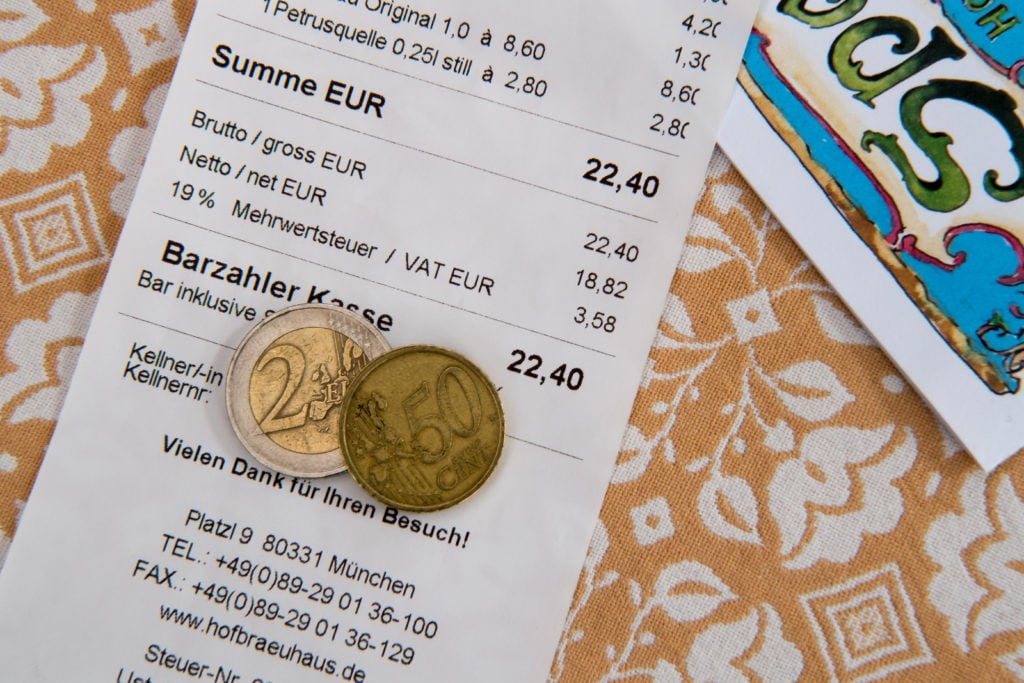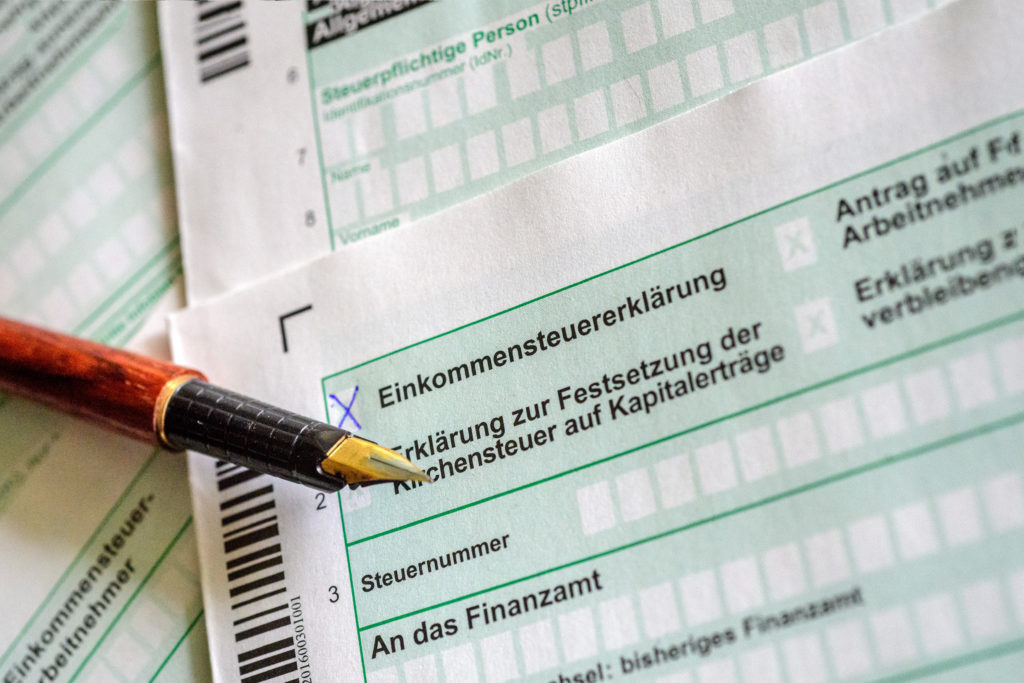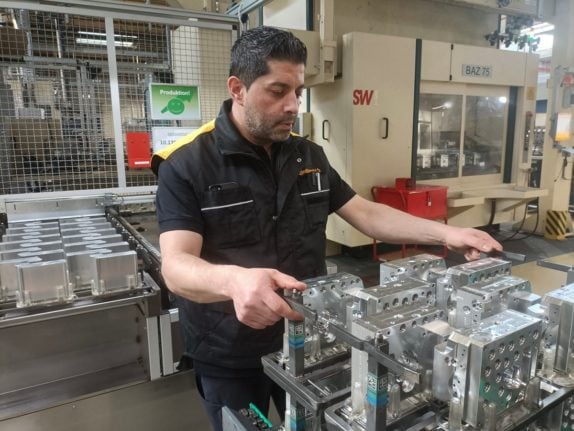1. Get a tax advisor
The German tax system is complicated, even for Germans. All the associated paperwork uses the Amtsprache (authority language) which is more like legalese than ‘normal’ German, and mistakes when filling out tax forms can cause you, at best, a massive headache and, at worst, a costly fine. So it’s best that you employ someone who knows what they’re doing to help you out.
That person is called a Steuerberater (tax advisor) in Germany. They will help you register with the tax office, correspond with them and submit your tax declarations.
Be aware that, in Germany, different deadlines apply for tax returns depending on whether you employ an official tax advisor or not. If you are doing the tax return on your own, the deadline for submitting your annual tax return is earlier than if you use a tax advisor’s services.
READ ALSO: What NOT to do when you’re freelancing in Germany
When looking for a tax advisor, a top tip is to use your network to get recommendations. Ideally, you want someone who will do more than just fill in the forms for you, but who will actually advise you on how best to manage your business finances so that you can make tax savings.
2. Keep your accounting in order
The better you keep your own accounts in order, the easier it will be for your tax advisor to compile your tax declarations and therefore the cheaper their services will be.
As a freelancer, there are a lot of costs you can deduct from your taxes – from train tickets, working materials, to meals out – so it’s best to keep hold of all your receipts and to keep them in good order.

In Germany, you’re obliged to keep hold of receipts for two years, in case of a tax inspection, so it’s a good idea to photocopy the type of machine-printed receipts you get from restaurants so that they stay legible for a long time.
There are also a few things to be aware of when writing your own invoices. Firstly, make sure that you include your tax number. This isn’t the 11-digit Steueridentifikationsnummer that everyone gets when registering in Germany, but the 10-digit Steuernummer you get from the Finanzamt after registering yourself as a freelancer.
Most companies won’t pay you if you don’t have this on your invoices so make sure you include it.
You should also make sure that you number your invoices properly – ideally in ascending order so that you can easily keep track of them. You are not allowed to issue two invoices with the same number and if you do so and the finance office notices, you could face an inspection of your whole accounting system.
There are numerous great accounting software programmes you can use to help you, such as Lexoffice and Sevdesk and, even if you have to pay for them, the costs will be tax deductible!
3. Find out if you’re eligible for financial support
In Germany, there are several opportunities for freelancers to gain financial support and to cut their outgoings, and its worth finding out if you’re eligible for them.
If you’re claiming unemployment benefits under ALG 1 and are thinking about becoming a freelancer, the employment office offers a special type of financial support to help you to get your freelance business off the ground.
Called the Grundungszuschuss (“foundation grant”) the payment is a six-month grant equalling your monthly entitlement under ALG 1 plus €300 towards your insurance costs can be applied for those in receipt of this unemployment benefit.
READ ALSO: Will freelancers benefit from Germany’s €300 energy allowance?
If you are engaged in some form of artistic profession in Germany – which can include journalism to pottery – you may be entitled to membership to the Kunstlersozialkasse (artists’ social insurance).
Being a member of the KSK means you only have to pay half of your health insurance and pension contributions, and the KSK will pay the rest.
4. Work out how much you think you will earn
As with starting any business, you need to have some idea of your expected earnings from the outset.
If you’re just starting out as a freelancer, or have some freelance gigs on the side of an employment position, then it might be worth considering registering yourself as a Kleinunternehmer (“small business”).
As a Kleinunternehmer, you can currently earn up to €22.000 per year without having to charge VAT and having to submit only yearly tax declarations.

Be aware that if you are registered as this kind of freelancer, you must include the following sentence in your invoices: ‘Gemäß § 19 UStG wird keine Umsatzsteuer berechnet’ which means ‘In accordance with Paragrah19 of the German VAT law, no VAT has been added to this invoice.’
READ ALSO: Everything you need to know about your German tax return in 2022
If you think you will earn more than €22.000 per year, you will need to pay Umsatzsteuer (VAT) and will have to submit tax declarations in advance and more often. Depending on how much you earn, this could be every month or every quarter.
5. Get your insurance in order
In Germany, it’s a legal requirement to have health insurance.
If you’ve just made the move from employment to being a freelancer and want to keep the same health insurer, you should get in contact with your health insurance provider straight away to tell them about your change of circumstances. They will ask you to re-register and to tell them your projected freelance earnings for the year, so they can amend your monthly fees.
If you don’t keep your health insurer provider updated, you could continue to be charged the higher rate that you had from your previous salary.

It’s not just health insurance you need to think about as a freelancer. It’s also wise to think about protecting yourself from any sort of claims that could arise as a result of any working mishaps.
If, for example, you lose your laptop which contains confidential client information, you need to be protected against claims.
That’s why it’s good to have both Betriebshaftversicherung (business liability insurance) and Rechtschutzversicherung (legal protection insurance).
6. Plan your time wisely
All of these bureaucratic obligations take time. So it’s really important that you take account of that when planning your time. For example, planning half a day a week to deal with your invoices, filing, emails to clients, and conversations with authorities can be really beneficial when scheduling your working time.
7. Grow your network
As a freelancer, networking is absolutely crucial to success.
Keep an up-to-date profile on websites like LinkedIn and German equivalent XING and keep in contact with anyone you’ve ever worked with, no matter how brief the contact was.
Having a network is not only about getting more clients, but also about building a support network in your field to exchange advice, tips and generally for your own enrichment.
Participating in workshops related to your field, going to seminars, and meet-ups, can be great ways of broadening your network.



 Please whitelist us to continue reading.
Please whitelist us to continue reading.
Member comments